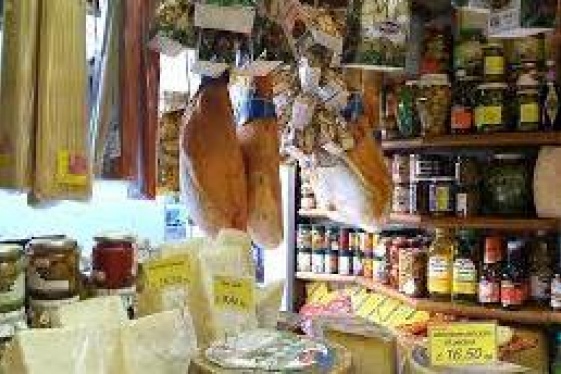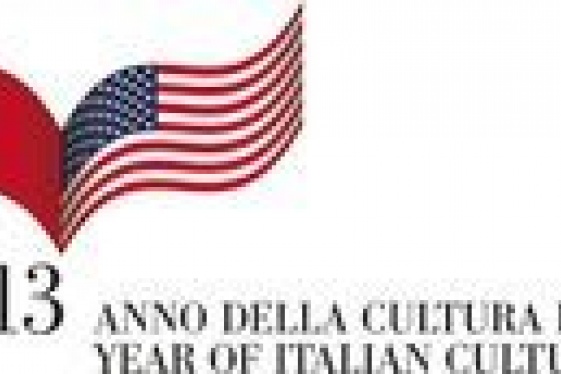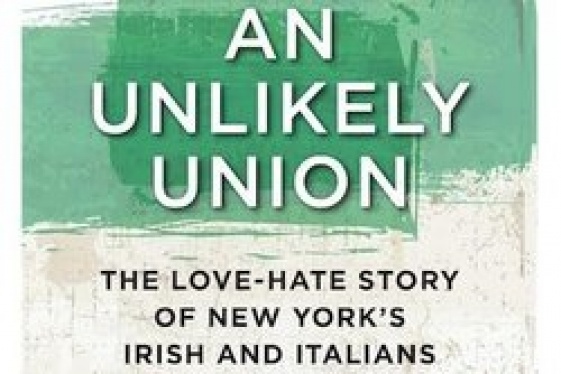
Tariffs are a hot topic, but Parmigiano Reggiano looks beyond, teaming up with the NY Jets

Tariffs may be making headlines, but at the recent Summer Fancy Food Show in New York—the largest specialty food trade event in the U.S.—the spotlight shifted to bigger ambitions. The Parmigiano Reggiano Consortium used the occasion to announce a new partnership with the New York Jets, which will officially kick off this September.
But this isn't just about selling cheese or expanding into a new market. In fact, in collaboration with the National Italian American Foundation (NIAF), the Consortium has launched the Parmigiano Reggiano General US Corporation, an operational structure that will work alongside American universities on educational projects, training programs with retail chains, and in-store initiatives.
Of course, tariffs remain a concern. Higher duties inevitably drive up prices, which can put premium products out of reach for some consumers. That’s a real challenge for producers and sellers alike. But Italian-made products, including Parmigiano Reggiano, are not commodities—they’re globally recognized for their exceptional quality. In the U.S. and around the world, they typically sell at a premium because buyers see more than just the product itself—they see heritage, tradition, and authenticity.
And this applies far beyond cheese. When an American chooses an Italian wine, they're not just picking a red or white—they're choosing a story, a region, and a legacy. Italian products tend to have what economists call “inelastic demand,” meaning that even when prices rise, demand doesn't drop off as sharply. This should help cushion the impact of potential tariff increases.
That’s why the Parmigiano Reggiano Consortium is stepping up to lead a potential coalition of Italian brands across sectors—brands looking to reshape their relationship with the U.S. market. These products can only be made in Italy, and American consumers clearly want them. Import statistics show steady year-over-year growth in Italian food and beverage exports to the U.S. Penalizing those consumers or making them pay more simply doesn’t make sense. Plus, from customs to checkout, there’s an entire American supply chain that benefits from these imports.
So here’s the Consortium’s pitch: let’s move beyond the idea of being mere suppliers. Let’s be partners who help create added value.
One example? If store staff don’t know how to properly present or explain Parmigiano Reggiano, let’s invest in training and education to boost sales and enhance customer experience. Need packaging that better fits the American lifestyle? Let’s collaborate with U.S. universities and design it together.
The U.S. currently accounts for about 10% of Parmigiano Reggiano’s global production. A genuine wedge sells for nearly twice the price of imitation parmesan, which means consumers know and value the difference. If higher tariffs were to cut U.S. market share to 6 or 7%, it wouldn’t be catastrophic—other markets could fill the gap. But fundamentally, this isn’t fair—to the consumer, or to the many American businesses in the value chain.
A 24-month-aged Parmigiano Reggiano wheel leaves the dairy in Italy priced at around $17 per kilo, but sells in the U.S. for $45–$49. Two-thirds of that added value stays within the American economy. Right now, with a 25% tariff in place, the Consortium pays more than $500 million a year to the U.S. government.
You may be interested
-
‘Fuggedaboudit’ the motto of new Italian del...
By Kimberly Sutton Love is what brought Tony Nicoletta to Texas from New York.The transpl...
-
1st Annual Little Italy Cannoli Tournament
Little Italy San Jose will be hosting a single elimination Cannoli tournament to coincide...
-
2015 Bocce Bash!!
Please join Mia Maria Order Sons of Italy in America Lodge #2813 as we host the 2015...
-
A Week in Emilia Romagna: An Italian Atmosp...
The Wine Consortium of Romagna, together with Consulate General of Italy in Boston, the Ho...
-
An Italian American Feast For Family Reunion...
Hey, come over here, kid, learn something. ... You see, you start out with a little bit of...
-
An Unlikely Union: The love-hate story of Ne...
Award-winning author and Brooklynite Paul Moses is back with a historic yet dazzling sto...
-
Buon Appetito! Unique Italian dining at Ragú...
There's something to be said for having your food prepared tableside. Guacamole tastes fre...
-
Cathedral of St. John the Divine, Oratorio S...
For the first time ever, The Cathedral of St. John the Divine, in collaboration with the O...










